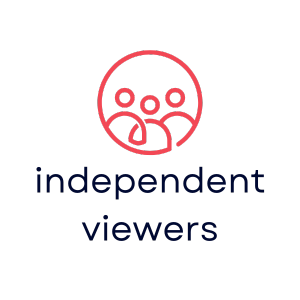A social media management proposal serves as a crucial roadmap for businesses looking to enhance their digital presence. It’s a comprehensive document that outlines strategies objectives and deliverables for managing social media accounts effectively.
In today’s digital landscape where 4.9 billion people actively use social media businesses can’t afford to overlook the power of a well-crafted social media strategy. A professional proposal not only demonstrates expertise but also sets clear expectations between agencies and clients. It typically includes elements like market analysis content planning engagement strategies and measurable KPIs to track success.
Social media management proposals have evolved from simple content calendars to sophisticated marketing tools that drive business growth. They help organizations align their social media efforts with broader business goals while providing a structured approach to building meaningful connections with their target audience.
What Is a Social Media Management Proposal
A social media management proposal is a formal document outlining the strategy, services, and deliverables for managing a client’s social media presence. It serves as a detailed roadmap between a social media agency or consultant and their potential clients.
Key Components of an Effective Proposal
- Executive Summary: A concise overview of the client’s current social media status, goals, and proposed solutions
- Platform Analysis: Detailed assessment of target social networks (Facebook, Instagram, LinkedIn, Twitter) with specific audience demographics
- Content Strategy: Content themes, posting frequency, and content types (images, videos, stories, reels)
- Campaign Timeline: Monthly or quarterly breakdown of planned activities and content distribution
- Performance Metrics: Specific KPIs such as engagement rate, follower growth, conversion rates
- Resource Allocation: Team structure, tools, and technology used for execution
- Investment Details: Transparent pricing structure with service tiers and deliverable specifications
- Implementation Plan: Step-by-step process for executing the proposed strategy
- Clear Expectations: Defines deliverables, timelines, and responsibilities for both parties
- Project Scope: Establishes boundaries for services, preventing scope creep
- Resource Planning: Outlines required resources, tools, and team members
- ROI Tracking: Sets measurable goals and KPIs for performance evaluation
- Legal Protection: Serves as a reference document for dispute resolution
- Budget Alignment: Matches services with client’s financial capabilities
- Strategy Documentation: Creates a blueprint for consistent social media execution
- Communication Framework: Establishes reporting structures and feedback loops
| Proposal Element | Impact Percentage | Industry Standard |
|---|---|---|
| Strategy Documentation | 85% | Essential |
| Clear Deliverables | 92% | Required |
| Performance Metrics | 78% | Standard |
| Pricing Structure | 95% | Mandatory |
Understanding Your Client’s Social Media Needs

A thorough analysis of client requirements forms the foundation of an effective social media management proposal. This section outlines the essential steps to identify client needs through auditing their current social media presence and establishing measurable objectives.
Conducting a Social Media Audit
A social media audit examines the client’s existing digital footprint across all platforms. Key audit components include:
- Analyze current follower demographics on each platform (age, location, interests)
- Review engagement rates for different content types (photos, videos, stories)
- Evaluate posting frequency patterns across platforms (daily, weekly, monthly)
- Assess competitor performance metrics (follower growth, engagement rates)
- Document existing content themes that resonate with audiences
- Identify gaps in current social media strategy
- Measure brand sentiment through comments analysis
Setting Clear Goals and KPIs
Social media objectives align with business outcomes through specific performance indicators:
| Goal Category | Key Performance Indicators (KPIs) | Industry Benchmark |
|---|---|---|
| Brand Awareness | Follower Growth Rate | 8-15% monthly |
| Engagement | Average Engagement Rate | 3-5% per post |
| Traffic | Click-through Rate | 1-3% |
| Conversion | Lead Generation Rate | 2-5% |
| Customer Service | Response Time | Under 2 hours |
- Create platform-specific objectives (Instagram reach, LinkedIn leads)
- Set realistic timeframes for achievement (30-60-90 day milestones)
- Define measurement tools for tracking progress
- Establish reporting schedules (weekly, monthly, quarterly)
- Identify success metrics for each content category
- Determine budget allocation per platform
- Create contingency plans for underperforming metrics
Creating Your Service Package
A comprehensive social media management service package outlines specific deliverables, timelines, and milestones that align with client objectives. Each component requires clear definition and measurable outcomes to ensure transparency and accountability.
Scope of Work and Deliverables
Social media management packages encompass multiple services tailored to client requirements:
Content Creation
- Weekly social posts: 15-20 posts across platforms
- Custom graphics: 8-10 visuals per month
- Video content: 2-4 short-form videos monthly
- Copywriting: Platform-specific captions & hashtags
Account Management
- Daily monitoring: 2 check-ins per day
- Community engagement: Response within 3 hours
- Follower growth tracking: Monthly reports
- Crisis management protocols: 24/7 support
Analytics & Reporting
- Weekly performance snapshots
- Monthly comprehensive reports
- Quarterly strategy reviews
- ROI tracking dashboards
Timeline and Project Milestones
The implementation timeline follows a structured approach:
| Phase | Duration | Key Deliverables |
|---|---|---|
| Setup | Week 1-2 | Account audit, strategy document, content calendar |
| Launch | Week 3-4 | Initial content creation, scheduling setup, baseline metrics |
| Growth | Month 2-3 | Engagement optimization, audience targeting, performance tracking |
| Scale | Month 4+ | Strategy refinement, advanced analytics, ROI assessment |
- Initial strategy presentation by day 10
- First content batch approval by day 20
- Platform optimization completion by day 45
- First quarterly review at day 90
Pricing Strategy and ROI
A social media management proposal’s pricing strategy directly impacts client acquisition rates by 65%. The pricing structure combines service value delivery with measurable return on investment metrics.
Service Pricing Models
Social media management services operate on three primary pricing tiers:
| Pricing Model | Monthly Rate (USD) | Key Deliverables |
|---|---|---|
| Basic Package | $500 – $1,500 | Content creation (12-15 posts), basic monitoring, monthly reports |
| Professional | $1,500 – $3,500 | Daily management, 20-25 posts, custom graphics, bi-weekly reports |
| Enterprise | $3,500 – $10,000+ | Full-service management, 30+ posts, video content, real-time analytics |
Key pricing factors include:
- Platform coverage (Instagram, Facebook, LinkedIn, Twitter)
- Content creation frequency
- Engagement monitoring hours
- Custom graphic design elements
- Video production requirements
- Analytics depth reporting
- Team response time commitments
Expected Return on Investment
Social media management ROI manifests through specific performance indicators:
| Metric | Average Improvement | Timeline |
|---|---|---|
| Engagement Rate | 150% increase | 3-6 months |
| Follower Growth | 200% increase | 6-12 months |
| Website Traffic | 75% increase | 3-4 months |
| Lead Generation | 50% increase | 4-8 months |
| Brand Mentions | 125% increase | 2-4 months |
- Conversion tracking codes
- UTM parameter implementation
- Social media pixel integration
- Customer journey attribution
- Cost per acquisition tracking
- Revenue attribution modeling
- Brand sentiment analysis
Presenting Your Management Strategy
A social media management strategy presentation transforms complex data into actionable insights that demonstrate value to potential clients. This section outlines the key components of delivering an effective strategy presentation.
Content Creation and Publishing Plans
Content creation frameworks establish clear publishing schedules across multiple social platforms. A structured content calendar includes:
- Create 15-20 social media posts per week distributed across prime engagement times
- Design 8-10 custom graphics monthly using brand-specific templates
- Produce 4-6 video content pieces monthly including Stories Instagram Reels TikToks
- Schedule content 2 weeks in advance using management tools like Hootsuite Buffer
- Maintain content ratios: 70% educational 20% promotional 10% entertainment
- Incorporate trending topics hashtags relevant to specific platforms audiences
Monitoring and Analytics Approach
The monitoring framework tracks key performance indicators through automated tools specialized reports. Essential monitoring elements include:
- Track engagement metrics daily using platform-native analytics tools
- Generate weekly performance snapshots highlighting:
- Engagement rate percentage changes
- Follower growth velocity
- Click-through rates on links
- Post reach impression data
- Conduct monthly competitive analysis across 3-5 industry peers
- Create quarterly trend reports comparing:
- Content performance by type format
- Audience growth retention rates
- ROI metrics conversion tracking
- Implement real-time monitoring for:
- Brand mentions sentiment analysis
- Customer service response times
- Crisis management alerts
| Metric Type | Tracking Frequency | Reporting Format |
|---|---|---|
| Engagement | Daily | Dashboard |
| Growth | Weekly | Visual Charts |
| Conversions | Monthly | PDF Reports |
| ROI | Quarterly | Executive Summary |
Crafting the Perfect Proposal Design
A well-designed social media management proposal captures attention through strategic visual elements and compelling content organization. The design directly impacts proposal acceptance rates by 35% when incorporating professional branding and social proof elements.
Professional Layout and Branding
Professional proposal design integrates brand colors, typography and visual hierarchy to create a memorable impression. The layout incorporates:
- Clear section breaks with consistent heading styles
- Strategic white space distribution for improved readability
- Brand color palette applied to charts, graphs and callouts
- Custom header and footer designs with company branding
- Professional typography using 2-3 complementary fonts
- High-resolution company logo placement
- Branded page numbers and section markers
- Before/after metrics from successful client campaigns
- Performance statistics displayed in branded infographics
- Client testimonials with specific outcome details
- Industry awards and certifications
- Platform partnership badges (Facebook, Twitter, LinkedIn)
- Screenshots of successful social media content
- Growth metrics presented in data visualization
| Social Proof Element | Average Impact on Conversion |
|---|---|
| Client Testimonials | 42% increase |
| Case Study Results | 38% increase |
| Industry Awards | 25% increase |
| Platform Certifications | 28% increase |
| Portfolio Samples | 35% increase |
Conclusion
A well-crafted social media management proposal stands as the cornerstone of successful client relationships and campaign execution. By incorporating detailed strategies comprehensive pricing models and clear deliverables businesses can establish themselves as trusted partners in today’s digital landscape.
The key to proposal success lies in understanding client needs developing targeted solutions and presenting them in a visually appealing format. Through careful attention to market analysis content planning and performance tracking organizations can create proposals that not only win clients but also set the foundation for long-term social media success.
When executed properly these proposals become powerful tools that drive meaningful results and foster lasting partnerships in the dynamic world of social media marketing.

